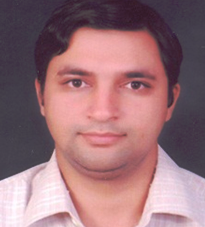
Dr Deepak kukkar
Hanyang University Republic of KoreaTitle: The expanding role of metal-organic frameworks in sensing of pollutant pesticides
Abstract:
The expanding role of metal-organic frameworks (MOFs) for the recognition of hazardous materials can be assigned to their numerous intriguing properties. Some unique characteristics of MOFs include dynamic porosity, high pore volume, tailorable optical properties, myriad of functionalities, and open metal sites. Besides, MOFs can harbor various guest molecules (e.g., metal nanoparticles, proteins, enzymes, and so on) both at their surface and within their pores. The above-mentioned properties of MOFs justify their expanding role in sensing applications. Accordingly, this work elaborates about the recent progress in the sensing applications of MOFs with specific focus on organophosphate pesticides (OPPs). Specifically, for OPPs sensing, acetylcholinesterase (AChE) was encapsulated in zeolitic imidazolate framework (ZIF)-8 to yield a nanoreactor (NR) termed as AChE@ZIF-8 NR. This NR produces a characteristic yellow color upon hydrolysis of acetylthiocholine chloride (ATCh) under optimized conditions of pH, temperature, and substrate concentration. The colorimetric biosensing of OPPs (e.g., malathion, glyphosate) was based upon their suppressive action on the ATCh hydrolysis activity of the NR. As a result, the intensity of the yellow color produced during ATCh hydrolysis by the NR is substantially reduced. Overall, the NR exhibited excellent reproducibility, stability, and ease of detection of the OPPs inhibitory colorimetric response.
Biography:
Dr. Deepak Kukkar completed his Ph.D. in 2014 from Panjab University, Chandigarh. He worked as Assistant Professor at Sri Guru Granth Sahib World University, Fatehgarh Sahib, Punjab, India from 2012 to January 2021. He was at Hanyang University as Visiting (Assistant) Professor from January 2021 to January 2022. He has published 45 articles in SCI journals. Dr. Kukkar has also served as reviewer for many Journals like JACS, ACS-Sustainable Chem and Engineering, Chemical Engineering Journal, Environmental Research, and many more. He has also served as Topic Editor for MDPI journals as well.
